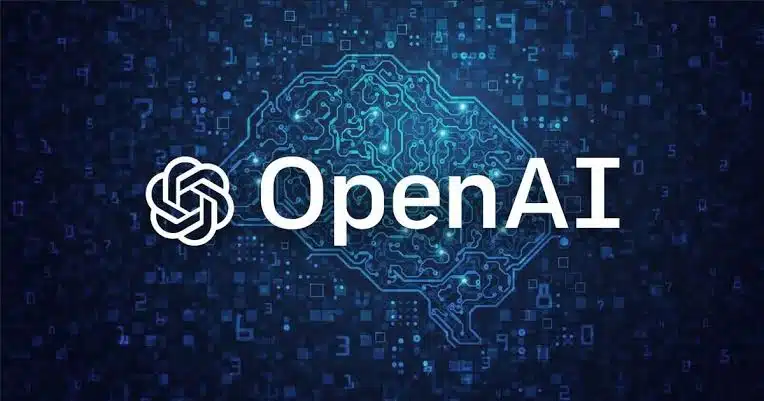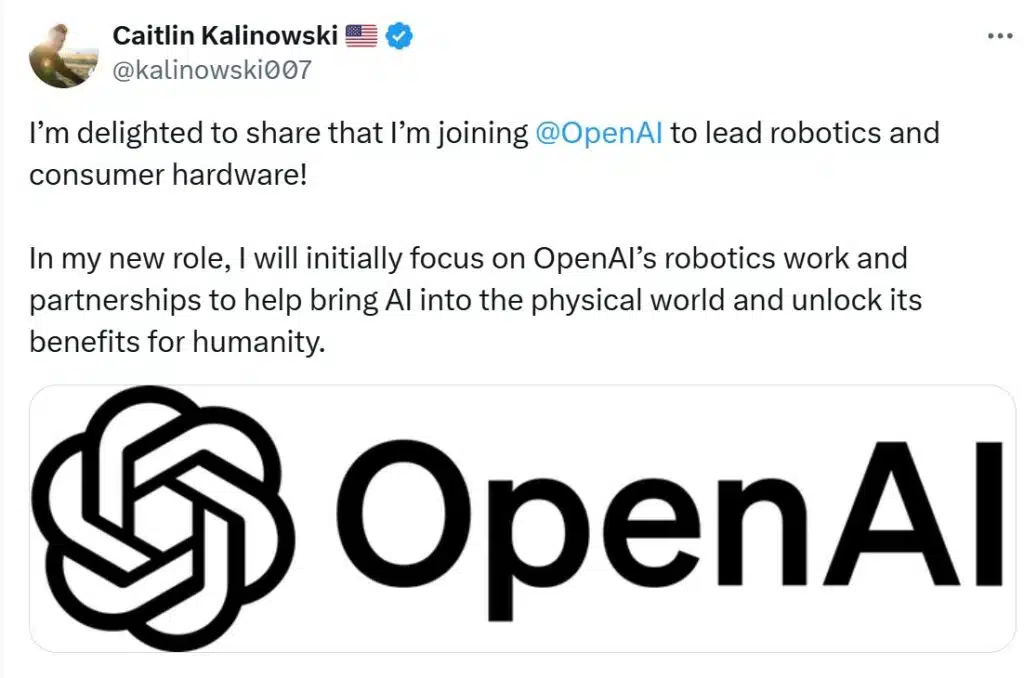Caitlin Kalinowski, former head of Meta’s AR hardware, is now leading OpenAI’s consumer hardware team for AI robotics.

Caitlin Kalinowski, who formerly served as the leader of the augmented reality hardware team at Meta, will now be in charge of a new consumer hardware team for the companies that build artificial intelligence.
In the past, Kalinowski has worked at Apple as both a designer and an engineer. He served as the principal engineer for Meta’s recently released “Orion” augmented reality spectacles. According to a Tech Crunch article, she has spent the last ten years working in the virtual reality and metaverse worlds.
It would appear that the OpenAI gig will be more focused on consumer robotics, despite the fact that her most recent product, Meta’s Orion augmented reality glasses, was created as part of her old company’s objectives in the metaverse domain but was introduced just recently.
In a post that she made on X.com, Kalinowski indicated that she was “delighted” to announce that she would be joining OpenAI in order to “lead robotics and consumer hardware business.” It is not yet obvious what her exact title will be, but the division will be one of the first attempts that the corporation makes in the hardware space.

“In my new role, I will initially focus on OpenAI’s robotics work and partnerships to help bring AI into the physical world and unlock its benefits for humanity.”
A surge in the development of artificial intelligence technology has occurred as a direct result of OpenAI’s introduction of ChatGPT in the year 2023. Despite the rapid rise of technology companies like Nvidia and TSMC dedicated to developing artificial intelligence hardware, the consumer market for AI-powered hardware and devices has not yet reached its peak.
Previous attempts to introduce artificial intelligence into the physical world, such as Humane’s AI “pin” and different smart speaker devices from firms such as Google and Amazon, have captivated the interest of consumers to differing degrees.
On the other hand, hardware that incorporates complex artificial intelligence systems, like OpenAI’s ChatGPT, has not yet achieved widespread market appeal. The corporation’s new consumer hardware section could potentially speed up the process by licensing specific technology to Big Tech.
This is an alternative to designing and manufacturing hardware in-house. In this way, the company would be able to use both its artificial intelligence models and the knowledge of its new hardware lead, who has worked with large-scale hardware manufacturers such as Apple and Meta.

